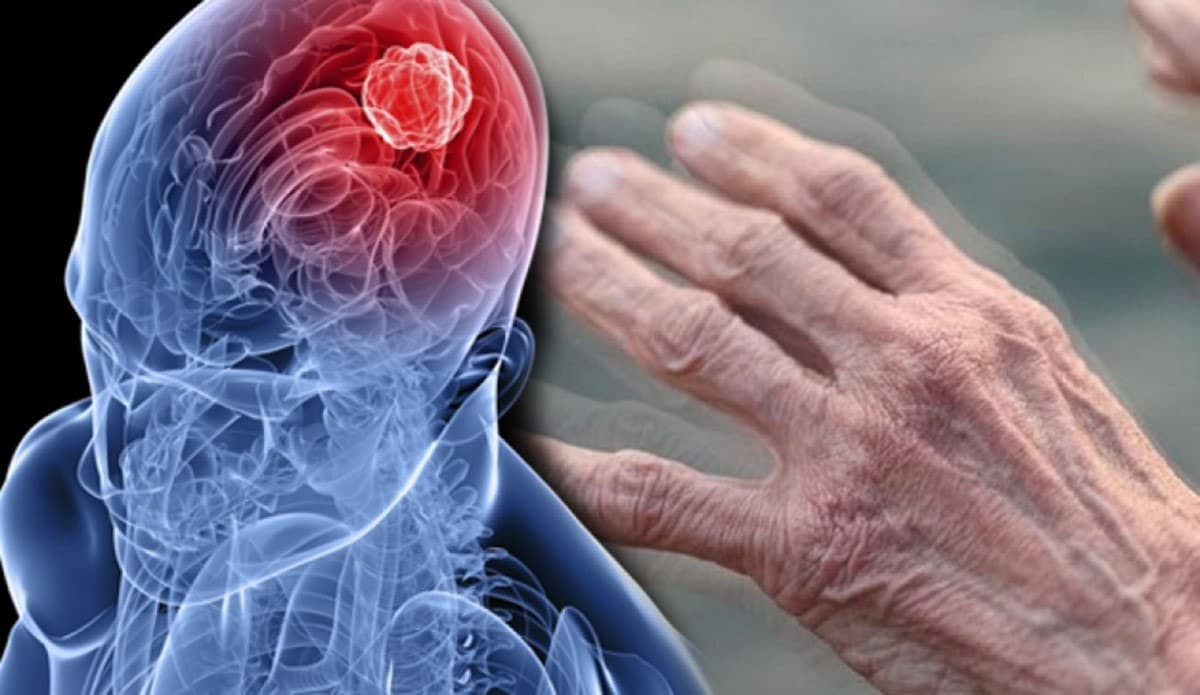News
CBD and Neurological Disorders: Investigating its Potential in Treating Conditions Like Alzheimer’s and Parkinson’s
Neurological disorders like Alzheimer’s and Parkinson’s pose significant challenges for patients and their families. As researchers delve into potential treatments, CBD has emerged as a subject of interest due to its potential therapeutic properties. In this blog, we explore the potential of CBD in treating neurological disorders, focusing on conditions like Alzheimer’s and Parkinson’s. We delve into the current research, potential benefits, and considerations surrounding the use of CBD in these conditions. While it’s important to note that CBD is not a cure, understanding its potential can provide hope for individuals seeking alternative approaches to managing these challenging neurological disorders.
Unraveling the Science: CBD and the Endocannabinoid System
The endocannabinoid system (ECS) is a complex network of receptors and neurotransmitters found throughout the body, including the brain and nervous system. It plays a crucial role in maintaining homeostasis and regulating various physiological processes. CBD, or cannabidiol, is a non-intoxicating compound derived from the cannabis plant that has gained significant attention for its potential therapeutic properties. In this section, we explore the fascinating science behind CBD and its interaction with the ECS.
CBD interacts with two main types of receptors in the ECS: CB1 receptors, primarily found in the brain and central nervous system, and CB2 receptors, predominantly present in immune cells and peripheral tissues. While CBD does not directly bind to these receptors, it modulates their activity and influences various signaling pathways. By doing so, CBD may affect neurotransmitter release, inflammation, and other processes that contribute to neurological functions.
Concerning neurological disorders like Alzheimer’s and Parkinson’s, understanding CBD’s interaction with the ECS provides valuable insights. Research suggests that CBD may have neuroprotective properties, potentially inhibiting the breakdown of certain neurotransmitters and reducing neuroinflammation. By influencing the ECS, CBD has the potential to impact neurological pathways associated with memory, inflammation, and motor control.
CBD’s interaction with the ECS extends beyond the direct modulation of receptors. It may also affect other components of the endocannabinoid system, such as enzymes responsible for the breakdown of endocannabinoids. By inhibiting these enzymes, CBD can increase the levels of endocannabinoids in the body, further influencing the ECS’s regulatory functions.
While the exact mechanisms by which CBD interacts with the ECS are still being explored, this intricate relationship offers a promising avenue for understanding CBD’s potential therapeutic effects in neurological disorders like Alzheimer’s and Parkinson’s. By unraveling the science behind CBD and the ECS, researchers can gain valuable insights into how CBD may influence neurological pathways, potentially providing relief and support for individuals affected by these challenging conditions.
Alzheimer’s and CBD: Promising Insights and Areas of Study

Alzheimer’s disease is a devastating neurological disorder that affects millions of people worldwide. The search for effective treatments has led researchers to explore the potential of CBD in mitigating Alzheimer’s symptoms. In this section, we delve into the current research on CBD’s role in Alzheimer’s treatment and the promising insights it offers.
Studies have suggested that CBD possesses neuroprotective properties, which means it has the potential to protect brain cells from degeneration and damage. Additionally, CBD exhibits anti-inflammatory and antioxidant effects that could help reduce chronic inflammation and oxidative stress, both of which play significant roles in the progression of Alzheimer’s disease.
One area of interest is CBD’s interaction with amyloid plaques, which are abnormal protein clusters found in the brains of Alzheimer’s patients. Research suggests that CBD may help prevent the accumulation of these plaques, potentially slowing down the neurodegenerative process and preserving cognitive function.
CBD has shown potential in modulating neurotransmitter activity, particularly acetylcholine, a neurotransmitter crucial for memory and learning. By enhancing acetylcholine signaling, CBD may support memory retention and cognitive performance in individuals with Alzheimer’s.
While these findings are promising, it is important to note that the research on CBD and Alzheimer’s is still in its early stages. Further studies are needed to fully understand the underlying mechanisms and determine the optimal dosage, delivery methods, and treatment protocols. Rigorous clinical trials with larger sample sizes are necessary to establish the efficacy and long-term effects of CBD in managing Alzheimer’s symptoms.
It is crucial for individuals considering CBD as a potential option for Alzheimer’s treatment to consult with healthcare professionals. They can provide guidance, monitor progress, and ensure that CBD is used in conjunction with other recommended therapies. Additionally, it is important to source high-quality CBD products from reputable manufacturers to ensure safety and efficacy.
As research continues, CBD holds promise as a potential therapeutic tool in mitigating Alzheimer’s symptoms and improving the quality of life for those affected. By supporting ongoing research efforts and gaining a deeper understanding of CBD’s mechanisms of action, we move closer to developing effective treatments for Alzheimer’s disease.
Parkinson’s Disease: Exploring CBD as a Symptom Management Tool

Parkinson’s disease is a complex neurological condition that affects millions of people worldwide. It is characterized by the degeneration of dopamine-producing cells in the brain, leading to motor symptoms such as tremors, rigidity, and difficulty with balance and coordination. As researchers strive to find new therapeutic options, CBD has emerged as a potential tool for managing Parkinson’s symptoms.
Several studies have explored the effects of CBD on Parkinson’s disease, and initial findings are promising. CBD interacts with the brain’s dopamine receptors, which are affected by the degeneration seen in Parkinson’s. By modulating dopamine activity, CBD may help alleviate motor symptoms and improve the quality of life for individuals with Parkinson’s. Additionally, CBD exhibits anti-inflammatory and antioxidant properties, which may be beneficial in reducing neuroinflammation and protecting brain cells from further damage.
While these early studies are encouraging, it is important to note that more research is needed to fully understand the optimal dosage, delivery methods, and long-term effects of CBD in Parkinson’s treatment. Each individual’s response to CBD may vary, and it is crucial to consult with healthcare professionals to determine the most appropriate approach for symptom management. Factors such as the specific stage of Parkinson’s, other medications being taken, and individual health considerations should be taken into account when considering CBD as part of the treatment plan.
ongoing clinical trials are essential to provide a solid evidence base for the use of CBD in Parkinson’s disease. Rigorous research can help establish the efficacy, safety, and long-term effects of CBD, allowing healthcare providers and individuals with Parkinson’s to make informed decisions about its potential role in symptom management.
CBD shows promise as a potential tool for managing Parkinson’s symptoms. Its interaction with dopamine receptors and its anti-inflammatory and antioxidant effects offer potential benefits for motor symptoms and overall quality of life. However, further research is necessary to determine the optimal use of CBD in Parkinson’s treatment and to address important considerations such as dosage and long-term effects. By supporting ongoing research efforts and collaborating with healthcare professionals, we can continue to explore the potential of CBD in improving the lives of individuals living with Parkinson’s disease.
Considerations and Future Directions in CBD Research for Neurological Disorders
As CBD continues to capture attention in the realm of neurological disorders, it is crucial to delve into the considerations and future directions in research. In this section, we explore important factors that need to be taken into account when considering CBD as a potential treatment option. Dosage plays a significant role, as finding the optimal dose for each individual and specific condition is essential for achieving desired therapeutic effects. Safety is another key consideration, and while CBD is generally well-tolerated, potential side effects such as drowsiness, dry mouth, and changes in appetite should be taken into account. Consulting healthcare professionals, particularly specialists familiar with neurological disorders, is highly recommended to ensure appropriate guidance and monitoring.
To fully understand the efficacy and long-term effects of CBD in treating neurological disorders, rigorous clinical trials are necessary. These trials can provide valuable insights into the optimal treatment protocols, potential interactions with other medications, and the overall safety profile of CBD. Furthermore, exploring different delivery methods, such as oral ingestion, sublingual administration, or inhalation, can help identify the most effective and convenient approaches for patients. Collaborative efforts between researchers, medical professionals, and regulatory bodies are vital in conducting comprehensive studies and establishing evidence-based guidelines for CBD use in neurological disorders.
Looking ahead, the future of CBD research in this field is promising. Continued investigation is needed to uncover the mechanisms through which CBD interacts with the complex neurological systems affected by conditions like Alzheimer’s and Parkinson’s. Further exploration of CBD’s potential anti-inflammatory, neuroprotective, and antioxidant properties can contribute to the development of targeted therapies. Additionally, investigating the potential synergistic effects of CBD with other compounds, such as terpenes or cannabinoids, may unlock new possibilities for enhanced treatment outcomes.
By addressing these considerations and investing in robust research, we can pave the way for a better understanding of CBD’s role in managing neurological disorders. As the scientific community continues to explore the potential of CBD, we have the opportunity to unlock its full therapeutic potential and offer hope for individuals and families affected by Alzheimer’s, Parkinson’s, and other neurological conditions. It is through diligent research, collaboration, and a commitment to patient well-being that we can make significant strides in harnessing the power of CBD for neurological health.
Unveiling the Potential of CBD for Neurological Disorders
While CBD shows promise in the realm of neurological disorders, particularly Alzheimer’s and Parkinson’s, it is important to approach it with a cautious and informed mindset. As research continues, we gain insights into the potential benefits and mechanisms of CBD in managing symptoms and improving the quality of life for individuals with these conditions. However, it is crucial to consult healthcare professionals, consider individual circumstances, and await further research before incorporating CBD into treatment plans. By staying informed and supporting ongoing research efforts, we can strive to uncover new avenues for managing and improving the lives of those affected by neurological disorders.


